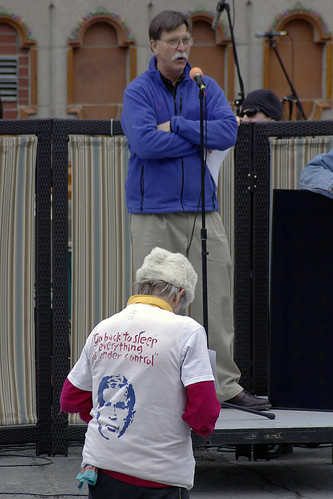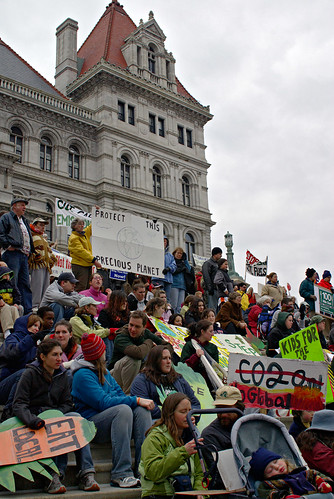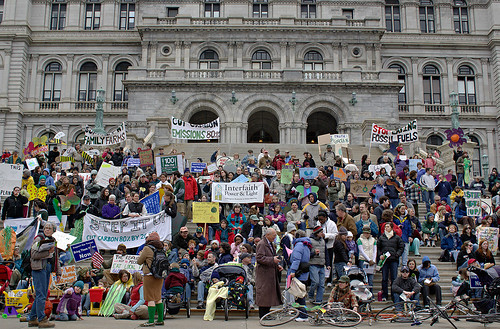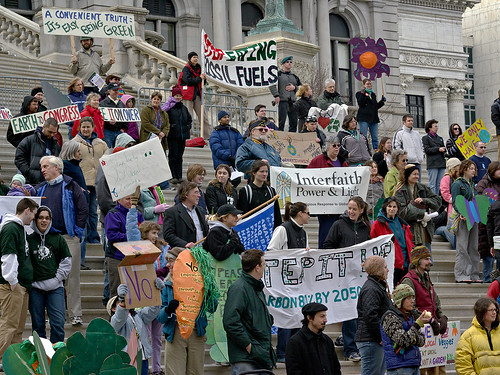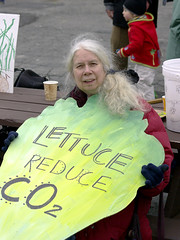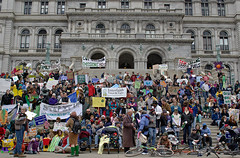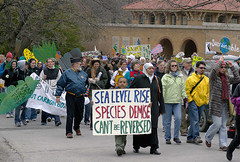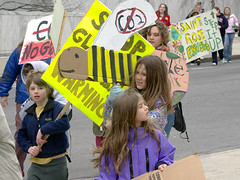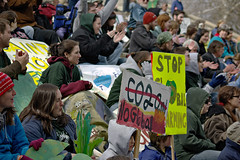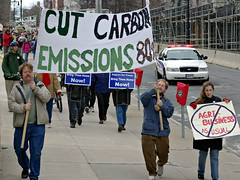
All photos (C) Justin Serpico 2007
The first annual "Day of Climate Action" swept across the nation on April 14th, with over 1350 rallies to urge congress to enact sweeping changes to reduce carbon emissions 80% by 2050.
While the rally was aimed at affecting national policy change, there was a tremendous emphasis on micro change. Farmers and activist spoke about the benefits of buying food grown by local farmers and ranchers.
It's well known that people don't feel like they have an individual impact on reversing global climate change, and Step It Up 2007 was aimed at changing this feeling.
Little things like switching from incandescent light bulbs, insulating a house properly, switching to alternative energy to at least partially power a house, buying locally grown produce and meats are all ways to reduce carbon emissions.
While in urban areas completely powering a house using green energy might be impossible, it is possible to reduce carbon consumption. Using solar energy to heat the homes hot water supply is a simple and prove approach. In some areas entire housing communities are using geothermic hot water. This water still needs to be heated but it is already much warmer coming up from the ground then traditional incoming water. This reduces energy cost and carbon emissions.
The future of home energy consumption, which puts more carbon into the air then an SUV per year, is reducing grid obtained energy and making each home more energy efficient so that each little bit of energy the homeowner can produce, whether it be solar, wind, geothermal, or other sources will have a greater impact.
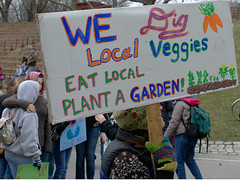
Food is another example of carbon pollution with a simple fix. The fact that it takes 36 calories of fossil fuel to transport 1 calorie of lettuce across the US is an example of how much carbon is emitted to feed this country. Most people probably never considered the impact of buying foods trucked in from far away on global warming.
Buying local foods reduces the amount of fossil fuels required to transport food, as well as supporting local growers, and keeping open space in your region.
The majority of our foods are trucked in from central locations, or from places with long growing seasons like California or Florida. Small farmers in the northeast are under extreme pressure to sell their land for development, while the nation has moved to more of a big box food supply economy.
In a push to show the quality and diversity of local foods, the Honest Weight Food Co-op of Albany, sponsored a free picnic in Washington Park prior to the march to the New York State capitol. The picnic was a showcase of local growers, with everything from free range BBQ chicken and tofu, to local produce and dairy available.
Following the march to the capitol local farmers, politicians and activist spoke about the individuals role in global climate change while pushing for national policy change.

technorati tags:Step It Up 2007, Step It Up, global warming, climate, climate change, Albany, NY, state capitol, farming, local produce, local, agriculture, CO2, carbon, emissions, pollution, green
Blogged with Flock








